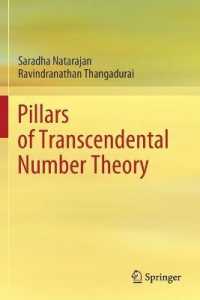- ホーム
- > 洋書
- > 英文書
- > Philosophy
Full Description
This book explores Swami Vivekananda's ideational visions, highlighting their multifaceted nature. On one level, it demonstrates how his ideas were a confluence of intellectual traditions that evolved both in India and abroad, including influences from Western liberalism. On another level, the book examines his indebtedness to colleagues, particularly those with differing ideational perspectives, who were connected to Ramakrishna Paramhamsa, his spiritual mentor. Despite being initiated into spiritualism by Ramakrishna, Vivekananda reshaped his spiritualism along humanist lines rather than strictly religious ones. The book underscores the distinctiveness of Vivekananda's perceptions, especially in contrast to many of Ramakrishna's followers who adopted conservative Hindu ideologies and dismissed other socio-cultural traditions. It argues that a deep analysis of Vivekananda's ideational vision reaffirms the notion that history, as a process, unfolds differently, exerting varied impacts on individuals' politico-ideological priorities.
This volume will be of significant interest to scholars and researchers in South Asian studies, politics, and modern Indian history.
Contents
Preface x
Introduction 1
1 Vivekananda's idea of India 15
2 Vivekananda and humanism 55
3 Vivekananda and Hinduism 89
4 Vivekananda's attack on divisive socio-cultural
designs and practices 127
5 Vivekananda's vision of socialism 159
6 Vivekananda: A Swami or an ascetic or a
politico-ideological activist? 195
Conclusion 229
Bibliographical notes 247
Index 250







